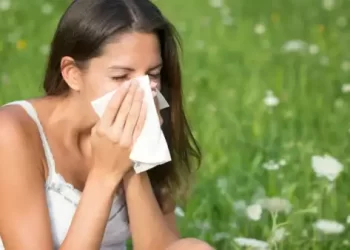Zinc plays a crucial role in a woman’s health. Since it is a trace element, the body only requires little amounts of it, but numerous chemical reactions within the body depend on it.
Zinc, which is well-known for boosting immunity, ought to be a staple of any woman’s diet. The good news is that we only require little amounts of it; the bad news is that lacking it might have detrimental effects.
.According to Dr. PN Chaudhary, Senior Consultant in Internal Medicine at Max Hospital in Vaishali, 11 milligrams (mg) of zinc per day is advised for men and 9 mg for women. A bit extra for women who are nursing or pregnant.
Know how zinc benefits your body and what can happen if you have a deficiency.
Boosts Immune System: Zinc helps sustain a strong immune system by being essential for immune cell function and cell signalling. It lowers oxidative stress and activates particular immune cells.
Skin Health and Healing: Zinc helps in tissue repair, wound healing, and skin health. It promotes DNA synthesis and protein synthesis, which helps injured skin regenerate.
Hormonal Balance: Zinc supplements may help women with PCOS (Polycystic Ovary Syndrome). It promotes overall hormonal health and aids in hormone regulation.
Diminishing Acne: Zinc has anti-inflammatory qualities that may aid in acne treatment.
Premenstrual Syndrome (PMS) Relief: Zinc may lessen the symptoms of PMS, including cramping, bloating, and mood swings.
Increasing Fertility: Healthy reproductive systems and egg quality depend on adequate zinc levels. It promotes cell development and division, which is essential for fertility.
The primary sources of zinc include seafood, such as crab and oysters. Sesame seeds, flax seeds, almonds, cashews, kidney beans, chickpeas, oats, poultry, and lamb are further sources.
The National Institutes of Health state that deficiencies in zinc can have an impact on the body’s digestive system and bones. It may also have an effect on the immune, central nervous, and reproductive systems.
You may face reduced immunity and digestive problems. Additionally, you may notice changes in your skin, such as a dry appearance that may not go away with normal moisturizing. Other symptoms include diarrhea, hair loss, and frequent infections.
Source:IT








 Finance
Finance






